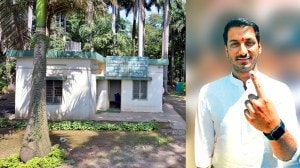Vodafone chief Sarin faces tough US call, leaves investors miffed
When Arun Sarin took over as head of the world’s largest cell phone group Vodafone Group Plc last year, investors worried that a costly...

When Arun Sarin took over as head of the world’s largest cell phone group Vodafone Group Plc last year, investors worried that a costly takeover on his home patch would head the US veteran’s agenda.
Sure enough, six months later Sarin is discussing whether a $30-billion-plus deal, by which the mobile giant would swap a 45 per cent stake in the largest US mobile phone operator for a 100 per cent stake in the number three, will add shareholder value.
Sarin, a 49-year-old deal-maker with a proven 18-year track record, faces one of his toughest calls as Friday’s bid deadline for struggling AT&T Wireless looms and questions arise over the fate of Vodafone’s stake in Verizon Wireless.
The former Chief operating officer of AirTouch, who helped hunt acquisition targets before selling the US Wireless group on to Vodafone in 1999, knows he must convince shareholders that Vodafone’s strategy is built on sound financials rather than naked ambition.
‘‘What is Sarin’s definition of shareholder interests? What is his timescale and which financial factors is he looking at?’’ asks one shareholder.
‘‘When he was appointed in the summer, one of the main concerns the market had was that he was an American and he wanted to do a big American deal. Up to now, we haven’t seen any evidence of that. Now it’s all coming home to roost.’’
Investors say he has done a good job to date at managing Vodafone’s 28-country empire and 130-million customer base.
Analysts have upgraded the stock and, while bid concerns have weighed on recent performance, the shares are still trading around 11 per cent higher than before Sarin took over.
Sarin hasn’t shied away from contemplating ambitious bids. In December, he declined to rule out a takeover of French ally Vivendi Universal to clinch control of a prized telecoms joint venture.
Few market experts doubt that Vodafone’s desire to control a US operator and bring its brand across the Atlantic will prompt it to launch an opening offer on Friday — if only to help drive up the auction price and rattle rivals.
Sarin slipped largely out of the public limelight since resigning as CEO of Vodafone’s US and Asian Pacific operations in 2000, after the British-based group’s US interests were rolled into the new Verizon Wireless. In the interlude before succeeding Vodafone’s CEO Chris Gent last August, Sarin was chief executive of Internet software supplier Infospace, ran US Venture capital group Accel-KKR Telecom and remained a Vodafone non-executive director.
Sarin is the son of an Indian military officer and graduated from IIT Kharagpur. Since then, he has been rooted in California. He came to the US in the 1970s and gained an MBA from the University of California, at Berkeley, in 1978.
Sarin cut his teeth at US Telecoms group Pacific Telesis, from which AirTouch was spun off in 1994. As AirTouch’s President and Chief operator officer, he helped sell the group to Vodafone for a hefty $66.5 billion in 1999.
Joining Vodafone, Sarin took over the enlarged group’s operations in the US, Asia and Australasia. He was named one of the top earners at a British-based firm in 2000 with a package of more than $40 million.
When Vodafone merged its US business with those of S.Carriers Bell Atlantic and GTE to form Verizon Wireless, in which it took its 45-per cent stake, Sarin was squeezed out and this led him to try being an entrepreneur.
‘‘I believe you are the product of all the minutes and hours that you have spent on the planet,’’ Sarin has been quoted as saying. ‘‘To be successful you have to work hard, have passion, do as well as you can, but make sure that you are not messing up what makes you a complete human being.’’
‘‘If you win on the professional side but lose on the familyside, I’m not sure that looking back over a 20-30 year career that you would find it entirely satisfying.’’
(Reuters)



- 01
- 02
- 03
- 04
- 05




























